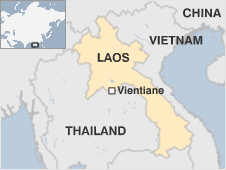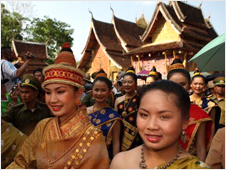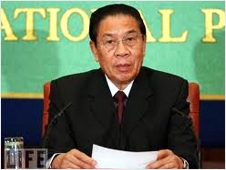Generic Medicines
Taj Pharma is the largest generic pharmaceutical company in India. We hold top positions in different established markets worldwide generics markets..

In line with the Lao PDR country partnership strategy, the Program consolidates ADB s past investments in PHC in eight northern provinces and provincial health management countrywide, and responds to the Government's efforts and ADB's commitment to implement the Vientiane Declaration on Aid Effectiveness.
Impact: The impact of the Health SDP will be reduced maternal and child mortality and malnutrition by 2015.
Laosone of the world's few remaining communist statesis one of east Asia's poorest countries. Since the collapse of the Soviet Union in 1991 it has struggled to find its position within a changing political
and
economic landscape. 
Communist forces overthrew the monarchy in 1975heralding years of isolation. Laos began opening up to the world in the 1990sbut despite tentative reformsit remains poor and dependent on international donations.
The government has implemented gradual economic and business reforms since 2005 to somewhat liberalize its domestic markets. Its longterm plans for reform include high-profile projects such as the Nam Theun 2 power project.
Thailand is the largest foreign investor in Laos. While this support is badly neededthe dangers of exposing Laos's fragile economy to world trends are clear.
AT-A-GLANCE
 Politics: Ruling communists maintain a monopoly of political power
Economy: One of the world's poorest nationsLaos has little industry and relies on foreign aid; hopes are pinned on a hydroelectric project
International: Communist regime is backed by China and Vietnam
|
The Asian currency crisis of 1997 caused the national currencythe kipto lose more than nine-tenths of its value against the US dollar.
Laos is a landlockedmountainous countrywidely covered by largely unspoilt tropical forest. Less than 5% of the land is suitable for subsistence agriculturewhich nevertheless provides around 80% of employment.
The main crop is ricewhich is grown on the fertile floodplain of the Mekong River. Vegetablesfruitspices and cotton are also grown. Part of the region's heroin-producing "Golden Triangle"Laos has all but stamped out opium production.
Outside the capitalmany people live without electricity or access to basic facilities. But Laos is banking on the anticipated returns from a billion-dollar dam schemeintended to generate electricity for export to Thailandto boost its economy and infrastructure.
Several small bomb blasts in recent years in and around the capitalVientianehave suggested that opposition to the ruling party may be growing. But any public dissent is dealt with harshly by the authorities.
The country's human rights record has come under scrutiny. Laos denies accusations of abuses by the military against the ethnic minority Hmong. Hmong groups have been fighting a low-level rebellion against the communist regime since 1975.
President: Choummaly Sayasone

Communist rule continues under Choummaly Sayasone
|
Choummaly Sayasonethe head of the ruling communist Lao People's Revolutionary Party (LPRP)was appointed by the National Assembly to succeed Khamtay Siphandon as president in June 2006.
He took over the party leadership from the octogenarian former president in March.
The LPRP is the only legal political party in Laos and holds 98 of the 99 seats in the assembly.
Mr Sayasone is seen as a staunch ally of his predecessorwho served three terms and oversaw the country's entry into the Association of Southeast Asian Nations (Asean) in 1997.
Choummaly Sayasonewho was born in 1936 in southern Laosis a former defence minister and vice president.
The ruling communists maintain strict control over the media. The government owns all newspapers and broadcast media. Newspaper circulation figures are very low.
Slandering the statedistorting party policies and spreading false rumours are all criminal offences. A draft law which would allow the development of private media has not been implemented.
Media rights group Reporters Without Borders noted in 2008 that the majority of the media "only puts out news that is favourable to the communist regime". The group said many Laotian viewers watch TV stations from neighbouring Thailand.
There were some 100,000 internet users by March 2008 (ITU figure).
The press
Television
Radio
News agency
KPL - state-run

AFRICA | ASIA-PACIFIC | AMERICAS | EUROPE | MIDDLEEAST | SOUTHASIA
![]()
![]()
![]()
Mauritania Mauritius Morocco Mozambique Namibia Niger Nigeria Republic-of-congo Rwanda Sao-tome-and-principe Senegal Seychelles Sierra-leone Somalia South-africa Sudan Swaziland Tanzania The-gambia Togo Tunisia Uganda Australia Brunei Burma Cambodia China East-timor Fiji Indonesia Japan Kazakhstan Kiribati Kyrgyzstan Laos Malaysia Marshall-islands Micronesia Mongolia Nauru New-zealand North-korea Palau Papua-new-guinea Samoa Singapore Solomon-islands South-korea Taiwan Tajikistan Thailand The-philippines Tonga Turkmenistan Tuvalu Uzbekistan Vanuatu Vietnam Antigua-and-barbuda Belize Bolivia Brazil Canada Chile Colombia Costa-rica Cuba Dominica Dominican-republic Ecuador El-salvador Grenada Guatemala Guyana Haiti Honduras Jamaica Mexico Nicaragua St-kitts-and-nevis St-lucia Suriname Trinidad-and-tobago Uruguay Venezuela Albania Andorra Armenia Austria Azerbaijan Belarus Belgium Bosnia-hercegovina Bulgaria Croatia Cyprus Czech-republic Denmark Estonia Finland France Georgia Germany Greece Hungary Iceland Ireland Italy Latvia Liechtenstein Lithuania Luxembourg Macedonia Malta Moldova Monaco Montenegro Norway Poland Portugal Russia San-marino Serbia Slovakia Slovenia Spain Sweden Algeria Egypt Iran Iraq Israel-and-palestinian-territories Jordan Kuwait Lebanon Libya Mauritania Oman Saudi-arabia Sudan Syria Tunisia United-arab-emirates Yemen Afghanistan Bangladesh Bhutan India Nepal Pakistan Sri-Lanka The-Maldive